Natural Home Remedies for Diabetes By Dr. Rajeev Singh
By Dr Rajeev Singh +2 more

Get,

to manage your symptom
Get your,


4 Cr+ families
benefitted

OTP sent to 9988776655



You’ve successfully subscribed to receive
doctor-approved tips on
Whatsapp

Get ready to feel your best.

Hi There,
Download the PharmEasy App now!!


Register to Avail the Offer
Send OTPBy continuing, you agree with our Privacy Policy and Terms and Conditions

Hi There,
Sign up on PharmEasy now!!
Trusted by 4 crore+ families

OTP sent to 9988776655



You have unlocked 25% off on medicines




Code: NU25
By Dr Rajeev Singh +2 more
Table of Contents
Diabetes is slowly evolving into a global pandemic. An increased prevalence of diabetes from 4% in 1995 to 5.4% by the year 2025 was estimated1. The IDF projects that the global prevalence of diabetes will rise to 12.2% (783.2 million people) by 20452.
Further, a prediction was made by WHO that the rise of diabetes cases will mainly be witnessed in developing countries. Insulin insufficiency (decreased insulin production) or insulin dysfunction (improper functioning of insulin) might be what leads to this complex disorder, i.e., diabetes. It is a disease in which multiple factors play a role and can lead to several complications if left untreated. Therefore, the approach to treating it might also be multi-faceted. However, the choice of treatment is at the discretion of your doctor.

If you have diabetes, you might experience the following symptoms:
Other symptoms that you might notice are:
When we eat food, it gets broken down by the digestive system into its various nutrients. The carbohydrate that is present in food is broken down into glucose, i.e., sugar, which requires assistance to reach its destination, i.e., the cells. A hormone called insulin (secreted by the pancreas) assists this glucose transport to cells and plays a key role in glucose absorption into the cells.
In diabetes, the pancreas either does not produce enough insulin, along with the cells that do not respond to the presence of insulin and cannot utilize it (Type 2 diabetes), or the pancreas does produce a very small amount of insulin (Type 1 diabetes). As a result, there is an increase in blood glucose levels, which is referred to as diabetes. However, different reasons can lead to the development of diabetes. Moreover, there are different types of diabetes.
Active research is being conducted in various parts of the world on treating diabetes, but there is a need for more research to reach any conclusion. However, based on the currently available data, the following remedies might be helpful for diabetes. Please make a note that diabetes is a serious condition and must be diagnosed and treated only by a medical doctor.

Stress might be the reason behind your rising blood sugar levels. Learning ways to manage stress might be of help in such conditions. Deep breathing, walking, meditation, working out, pursuing a hobby, gardening, and listening to your favourite music might be helpful to de-stress. Approaching a mental health counsellor and asking for help might also be a good first step towards coping with stress better. Therefore, you should discuss this with your doctor and reach a proper conclusion regarding methods of stress management.
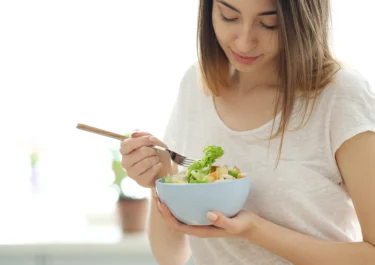
It is important to consult a doctor or nutritionist and decide on a suitable diet plan for your health needs. Your doctor might recommend that you eat foods that are rich in fibre, like whole grains, fruits, and vegetables etc. They might recommend drinking water instead of juices and soda. These carefully devised dietary changes, prescribed by your doctor, might prove to be helpful for diabetes.
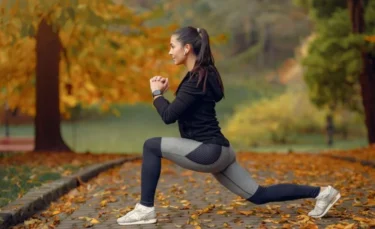
Your doctor might recommend that you stay active most days and exercise regularly to stay fit and active. This might be helpful to lose weight if you are overweight, maintain a healthy weight, and control blood sugar levels as well. You can start exercising by taking frequent and short walks during the day. Then, you can slightly ramp up your exercise routine by trying out various other forms of exercise like yoga, stretch bands, etc. However, you should consult a professional before deciding on and adapting to a new exercise routine.
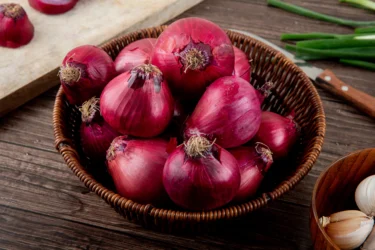
An animal study6 on rabbits found that dried onion powder might have a potential blood sugar-lowering (anti-hyperglycaemic) effect. Another study6 on rats showed that a bioactive compound present in onion might have a blood glucose-lowering effect. In yet another study6 conducted on patients with diabetes, the blood sugar-reducing potential of onion juice was noted. However, more research is required to prove the effects of diabetes home remedies Ayurveda might have to offer. Kindly consult an Ayurvedic physician before using any herbal supplement or remedy, keeping in mind the potential risks associated with any form of supplement and therapy, along with the risks involved when being treated with multiple forms of therapy simultaneously .
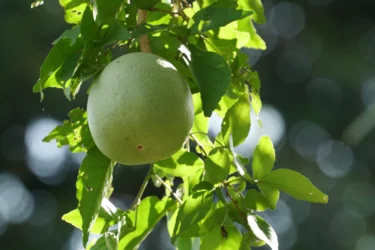
Bel, also known as Bengal quince or Bilva, is scientifically referred to as Aegle marmelos. It was seen in studies6, 7 that the leaves of the bel tree might have the potential to lower the sugar, urea, and cholesterol of the blood. It might also help to stop the sudden rise of blood sugar that usually occurs after eating food. However, more studies are required to prove the effects of such a natural cure for diabetes. Please do not use it without consulting a doctor.
It is important to undergo foot examination, eye examination, and perform kidney function tests at least every six months to one year for a diabetic patient (type 1 or type 2) as per international guideline recommendations as these are commonly involved organs which show complications as the disease progresses.
Dr. Ashish Bajaj, M.B.B.S., M.D. in Clinical Pharmacology and Toxicology
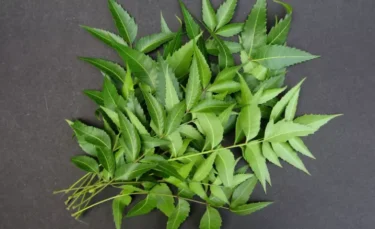
Animal studies6 have shown that neem might help lower blood sugar. It might help increase glucose uptake by cells and deposition of glycogen (complex sugar-containing glucose) in rats. However, more human studies are required on the possible use of neem for diabetes. You should consult a doctor.

Its scientific name is Acacia arabica. It is found commonly all over India in the wild. It might have an anti-diabetic effect by potentially helping the release of insulin hormone and lowering blood glucose levels. In animal studies8, the seeds of babul were found to have the potential to decrease blood glucose levels by affecting the cells of the pancreas, which might help in insulin production. However, more studies are required to prove such claims; therefore, you should consult a doctor.
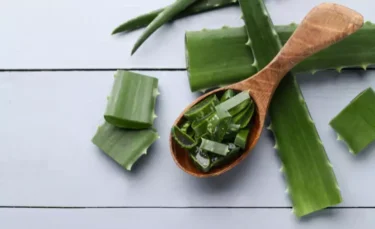
Aloe vera is another such herb which might have the potential to aid in managing diabetes. Animal studies8 have shown that Aloe vera might potentially decrease blood glucose and increase the capacity of cells to utilize glucose. It might also influence the secretion of insulin from the pancreatic cells9. However, more research is required to prove the potential uses of aloe vera for diabetes. Therefore, please consult a doctor.
Though there are studies that show the benefits of the given herbs and home remedies in diabetes, these are insufficient. There is a need for large-scale human studies to establish the true extent of the benefits of these home remedies on human health. Thus, these should only be taken with caution and never as a substitute for medical treatment.
Several medicinal plant have shown to be effective in different stages of diabetes, such as curcumin is proposed to be used as one of interventions in pre-diabetes therapy to prevent the progression of T2DM due to its proven benefits and safety profile,26 whereas, cinnamon can be a better option for diabetic patients who are having co-existing hypertension, and on the other hand, the extract of Aloe vera leaf gel with doses of demonstrated increased levels of insulin from regenerated pancreatic beta-cells10.
Dr. M.G. Kartheeka, MBBS, MD(Pediatrics)
Also Read: 45 Food Items That May Help To Control Blood Sugar!
Suppose you have not been diagnosed with diabetes and notice the symptoms of diabetes such as frequent urination, increased thirst, etc.; then you should visit a doctor and get a clear diagnosis. Your doctor will examine you thoroughly and reach a conclusion.
If you have already been diagnosed with diabetes, then you should visit a doctor if:
You must not rely on home remedies alone for the treatment of the condition and should consult a qualified doctor for any advice for the condition if the symptoms do not improve with home remedies.
Diabetes is a complex medical condition, and many factors might have a role in it. There are many factors that may affect the blood glucose level. It might occur due to the improper production or function of insulin, which is released from the pancreas. If you have diabetes, you might experience weakness, increased thirst, frequent urination, etc. Some home remedies that might help with diabetes are stress management, proper diet, onion, bel, etc. However, you should consult a doctor for the proper diagnosis and treatment of diabetes. If you are a known diabetic, ensure that you regularly consult your doctor, especially when your glucose levels reach out of the target range.
Also Read: How to Reduce Blood Sugar Level Immediately
No. Diabetes does not go away on its own. Please consult a doctor to receive a proper diagnosis and treatment plan for diabetes. Diet, exercise, and medicines form the keystones of managing and reversing diabetes.
Yes. Your doctor might recommend that you exercise as one of the most important ways for lowering and managing blood sugar, along with making you fitter.
Your doctor might recommend you include fruits and vegetables in your diet as they are rich in fibre. However, some fruits might be better to avoid. Therefore, kindly consult a doctor as to the fruits that can and cannot be consumed
Diabetes is a serious condition and must be diagnosed and treated by a doctor. However, some of the potential home remedies that might help with diabetes are onions, Bel, Neem, exercise, good food, stress management, etc. However, more research is required regarding the potential use of such natural remedies for diabetes. Kindly consult a doctor.
Disclaimer: The information provided here is for educational/awareness purposes only and is not intended to be a substitute for medical treatment by a healthcare professional and should not be relied upon to diagnose or treat any medical condition. The reader should consult a registered medical practitioner to determine the appropriateness of the information and before consuming any medication. PharmEasy does not provide any guarantee or warranty (express or implied) regarding the accuracy, adequacy, completeness, legality, reliability or usefulness of the information; and disclaims any liability arising thereof.
Comments

Leave your comment...
You may also like
Comments